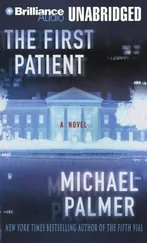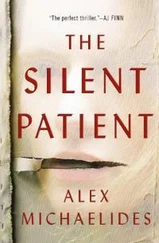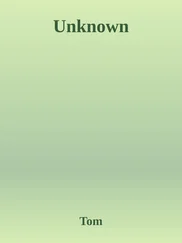Michael Ondaatje - The English Patient
Здесь есть возможность читать онлайн «Michael Ondaatje - The English Patient» весь текст электронной книги совершенно бесплатно (целиком полную версию без сокращений). В некоторых случаях можно слушать аудио, скачать через торрент в формате fb2 и присутствует краткое содержание. Жанр: Старинная литература, на русском языке. Описание произведения, (предисловие) а так же отзывы посетителей доступны на портале библиотеки ЛибКат.
- Название:The English Patient
- Автор:
- Жанр:
- Год:неизвестен
- ISBN:нет данных
- Рейтинг книги:4 / 5. Голосов: 1
-
Избранное:Добавить в избранное
- Отзывы:
-
Ваша оценка:
- 80
- 1
- 2
- 3
- 4
- 5
The English Patient: краткое содержание, описание и аннотация
Предлагаем к чтению аннотацию, описание, краткое содержание или предисловие (зависит от того, что написал сам автор книги «The English Patient»). Если вы не нашли необходимую информацию о книге — напишите в комментариях, мы постараемся отыскать её.
The English Patient — читать онлайн бесплатно полную книгу (весь текст) целиком
Ниже представлен текст книги, разбитый по страницам. Система сохранения места последней прочитанной страницы, позволяет с удобством читать онлайн бесплатно книгу «The English Patient», без необходимости каждый раз заново искать на чём Вы остановились. Поставьте закладку, и сможете в любой момент перейти на страницу, на которой закончили чтение.
Интервал:
Закладка:
The sapper signed out a Triumph motorbike, strapped a crimson emergency light onto his arm, and they rode back the way they had come—back into and through the now innocent towns like Urbino and Anghiari, along the winding crest of the mountain ridge that was a spine down Italy, the old man bundled up behind him hugging him, and down the western slope towards Arezzo. The piazza at night was empty of troops, and the sapper parked in front of the church. He helped the mediaevalist off, collected his equipment and walked into the church. A colder darkness. A greater emptiness, the sound of his boots filling the area. Once more he smelled the old stone and wood. He lit three flares. He slung block and tackle across the columns above the nave, then fired a rivet already threaded with rope into a high wooden beam. The professor was watching him bemused, now and then peering up into the high darkness. The young sapper circled him and knotted a sling across his waist and shoulders, taped a small lit flare to the old man’s chest.
He left him there by the communion rail and noisily climbed the stairs to the upper level, where the other end of the rope was. Holding onto it, he stepped off the balcony into the darkness, and the old man was simultaneously swung up, hoisted up fast until, when the sapper touched ground, he swung idly in midair within three feet of the frescoed walls, the flare brightening a halo around him. Still holding the rope the sapper walked forward until the man swung to the right to hover in front of The Flight of Emperor Maxentius .
Five minutes later he let the man down. He lit a flare for himself and hoisted his body up into the dome within the deep blue of the artificial sky. He remembered its gold stars from the time he had gazed on it with binoculars. Looking down he saw the mediaevalist sitting on a bench, exhausted. He was now aware of the depth of this church, not its height. The liquid sense of it. The hollowness and darkness of a well. The flare sprayed out of his hand like a wand. He pulleyed himself across to her face, his Queen of Sadness, and his brown hand reached out small against the giant neck.
The Sikh sets up a tent in the far reaches of the garden, where Hana thinks lavender was once grown. She has found dry leaves in that area which she has rolled in her fingers and identified. Now and then after a rain she recognizes the perfume of it.
At first he will not come into the house at all. He walks past on some duty or other to do with the dismantling of mines. Always courteous. A little nod of his head. Hana sees him wash at a basin of collected rainwater, placed formally on top of a sundial. The garden tap, used in previous times for the seedbeds, is now dry. She sees his shirtless brown body as he tosses water over himself like a bird using its wing. During the day she notices mostly his arms in the short-sleeved army shirt and the rifle which is always with him, even though battles seem now to be over for them.
He has various postures with the gun—half-staff, half a crook for his elbows when it is over his shoulders. He will turn, suddenly realizing she is watching him. He is a survivor of his fears, will step around anything suspicious, acknowledging her look in this panorama as if claiming he can deal with it all.
He is a relief to her in his self-sufficiency, to all of them in the house, though Caravaggio grumbles at the sapper’s continuous humming of Western songs he has learned for himself in the last three years of the war. The other sapper, who had arrived with him in the rainstorm, Hardy he was called, is billeted elsewhere, nearer the town, though she has seen them working together, entering a garden with their wands of gadgetry to clear mines.
The dog has stuck by Caravaggio. The young soldier, who will run and leap with the dog along the path, refuses to give it food of any kind, feeling it should survive on its own. If he finds food he eats it himself. His courtesy goes only so far. Some nights he sleeps on the parapet that overlooks the valley, crawling into his tent only if it rains,
He, for his part, witnesses Caravaggio’s wanderings at night. On two occasions the sapper trails Caravaggio at a distance. But two days later Caravaggio stops him and says, Don’t follow me again. He begins to deny it, but the older man puts his hand across his lying face and quiets him. So the soldier knows Caravaggio was aware of him two nights before. In any case, the trailing was simply a remnant of a habit he had been taught during the war. Just as even now he desires to aim his rifle and fire and hit some target precisely. Again and again he aims at a nose on a statue or one of the brown hawks veering across the sky of the valley.
He is still very much a youth. He wolfs down food, jumps up to clear away his plate, allowing himself half an hour for lunch.
She has watched him at work, careful and timeless as a cat, in the orchard and within the overgrown garden that rises behind the house. She notices the darker brown skin of his wrist, which slides freely within the bangle that clinks sometimes when he drinks a cup of tea in front of her.
He never speaks about the danger that comes with his kind of searching. Now and then an explosion brings her and Caravaggio quickly out of the house, her heart taut from the muffled blast. She runs out or runs to a window seeing Caravaggio too in the corner of her vision, and they will see the sapper waving lazily towards the house, not even turning around from the herb terrace.
Once Caravaggio entered the library and saw the sapper up by the ceiling, against the trompe l’oeil—only Caravaggio would walk into a room and look up into the high corners to see if he was alone—and the young soldier, his eyes not leaving their focus, put out his palm and snapped his fingers, halting Caravaggio in his entrance, a warning to leave the room for safety as he unthreaded and cut a fuze wire he had traced to that corner, hidden above the valance.
He is always humming or whistling. “Who is whistling?” asks the English patient one night, having not met or even seen the newcomer. Always singing to himself as he lies upon the parapet looking up at a shift of clouds.
When he steps into the seemingly empty villa he is noisy. He is the only one of them who has remained in uniform. Immaculate, buckles shined, the sapper appears out of his tent, his turban symmetrically layered, the boots clean and banging into the wood or stone floors of the house. On a dime he turns from a problem he is working on and breaks into laughter. He seems unconsciously in love with his body, with his physicalness, bending over to pick up a slice of bread, his knuckles brushing the grass, even twirling the rifle absent-mindedly like a huge mace as he walks along the path of cypresses to meet the other sappers in the village.
He seems casually content with this small group in the villa, some kind of loose star on the edge of their system. This is like a holiday for him after the war of mud and rivers and bridges. He enters the house only when invited in, just a tentative visitor, the way he had done that first night when he had followed the faltering sound of Hana’s piano and come up the cypress-lined path and stepped into the library.
He had approached the villa on that night of the storm not out of curiosity about the music but because of a danger to the piano player. The retreating army often left pencil mines within musical instruments. Returning owners opened up pianos and lost their hands. People would revive the swing on a grandfather clock, and a glass bomb would blow out half a wall and whoever was nearby.
He followed the noise of the piano, rushing up the hill with Hardy, climbed over the stone wall and entered the villa. As long as there was no pause it meant the player would not lean forward and pull out the thin metal band to set the metronome going. Most pencil bombs were hidden in these—the easiest place to solder the thin layer of wire upright. Bombs were attached to taps, to the spines of books, they were drilled into fruit trees so an apple falling onto a lower branch would detonate the tree, just as a hand gripping that branch would. He was unable to look at a room or field without seeing the possibilities of weapons there.
Читать дальшеИнтервал:
Закладка:
Похожие книги на «The English Patient»
Представляем Вашему вниманию похожие книги на «The English Patient» списком для выбора. Мы отобрали схожую по названию и смыслу литературу в надежде предоставить читателям больше вариантов отыскать новые, интересные, ещё непрочитанные произведения.
Обсуждение, отзывы о книге «The English Patient» и просто собственные мнения читателей. Оставьте ваши комментарии, напишите, что Вы думаете о произведении, его смысле или главных героях. Укажите что конкретно понравилось, а что нет, и почему Вы так считаете.












